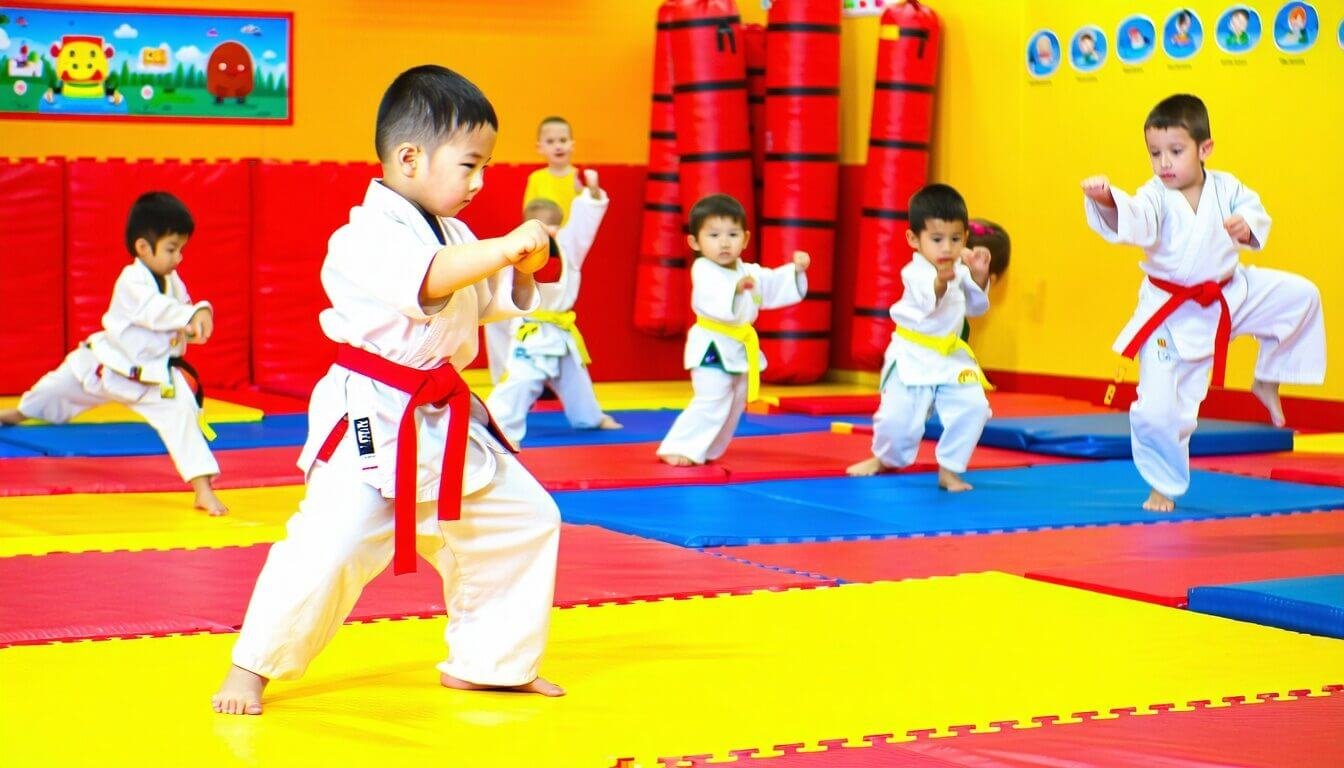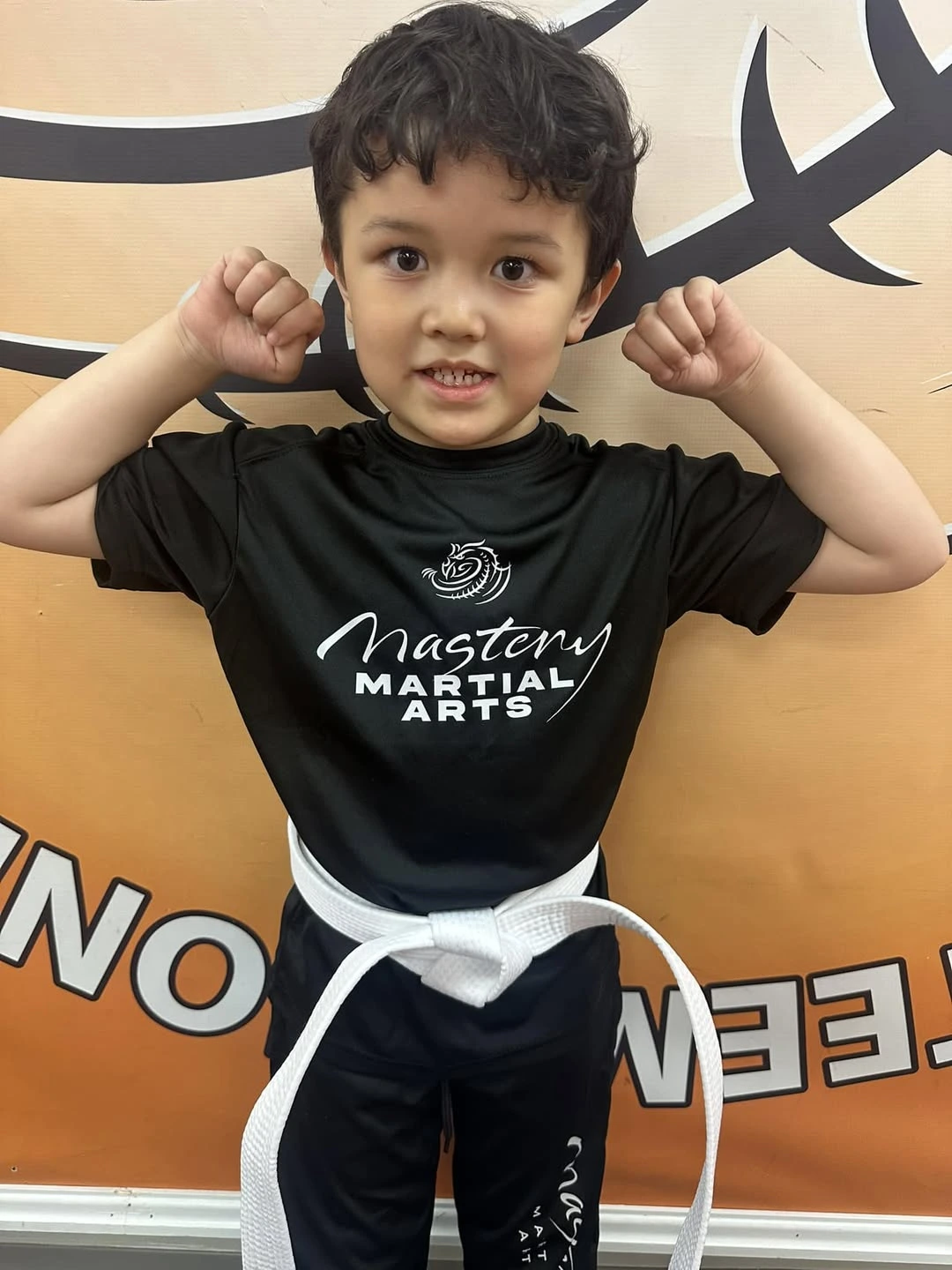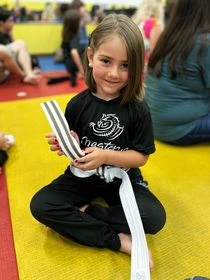If you want a practical way to boost your child’s classroom confidence, consider martial arts drills for school readiness. Studies show that structured martial arts programs can help children sharpen their focus, build resilience, and gain self-discipline. Good news, these drills can also feel like fun games rather than chores.
Start With Confidence
A big part of school success comes from believing in your own abilities. Martial arts emphasizes personal growth, not just competition. For your child, that may mean earning belt levels at their own pace, celebrating milestones each step of the way. Research suggests that children who practice martial arts tend to develop stronger self-esteem and a healthier mindset. If you’re looking for even earlier boosts, you might check out martial arts classes for young children to begin building that confidence early.
- Celebrate small wins: Praise every new skill your child masters, whether it’s a simple block or a focused stance.
- Encourage self-improvement: Martial arts fosters an “I can do this” mindset, which lights a spark for learning in the classroom.
Add Key Martial Arts Drills
After confidence, the next step is practicing drills that prepare your child’s body and mind. Children who regularly train report improved attentional control and better impulse management. In fact, one school-based program found that students showed fewer behavioral problems and boosted mindfulness after consistent practice. When these skills transfer to school, your child is more apt to follow directions and focus on tasks.
- Basic Stance And Ready Position
- Have your child stand with feet shoulder-width apart, knees slightly bent, and their eyes forward. This posture wakes the mind, reducing fidgeting.
- The “ready stance” serves as a mental reset, reminding kids to pay attention before they start a new drill.
- Breathing Exercises (The “Breath Brake”)
- Deep breathing slows the heart rate. Show your child how to inhale for four counts and exhale for four counts.
- According to studies like the Heroes Circle program, mindful breathing reduces stress and helps children stay calm, even amid classroom chaos.
- Focused Punch And Kick Practice
- Simple striking drills teach body coordination and reinforce listening skills, especially when the instructor changes the pace or pattern.
- Consider practicing a few minutes of basic jabs or low kicks to channel your child’s energy into structured movement.
Blend Physical And Mental Focus
It’s not just about physical strength. Martial arts integrates mindfulness, discipline, and perseverance. Research points to improved executive function and better emotional control when kids balance both body and mind in training. This is especially helpful if you’re looking to manage high-energy moments at home or help your child excel in group activities.
- Reinforce attention: Remind your child to “check in” mentally every time they change a stance or start a new sequence.
- Promote problem-solving: Many drills ask kids to adapt to new angles or respond to slight variations, which translates into better flexibility in school assignments.
If you want to see these benefits early, you might explore martial arts for toddlers if you have younger children around age four. Even a small routine of punches and footwork helps them get used to directions and structure.
Cultivate A Steady Routine
A predictable schedule can help kids approach both their martial arts practice and daily schoolwork with less stress. Several instructors also recommend short, consistent sessions to keep children engaged.
- Set a weekly training plan: Pick the same days and times each week to establish the habit.
- Combine physical drills with quick reflection: After each session, ask your child what went well and what they’d like to improve. This short reflection can boost problem-solving skills and self-awareness.
- Keep it playful: Kids learn best when they’re having fun, so try turning practice into a game. You could even incorporate martial arts games for building confidence to keep your child motivated.
Recap And Next Step
Martial arts can serve as a powerful tool to help your child feel prepared for the new school year. By blending focus drills, mindful breathing, and consistent practice, you’re offering them a head start in both the classroom and in life. If you want a more personalized approach, Mastery Martial Arts – Troy can help guide your child toward success, and they offer a free VIP 1-on-1 Introductory Lesson to get started. You’ll see their confidence soar, both on the mat and off.
Give your child the chance to sharpen essential life skills before the first bell rings. With steady martial arts practice, they’ll develop improved focus, resilience, and self-belief. And when the new school year rolls around, you’ll see just how valuable those early steps were.





0 Comments